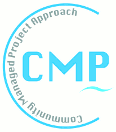Rural Water Supply Network Forum 2011
The 6th Rural Water Supply Network (RWSN) Forum is a rural water supply event that takes place every three to four years. This year the forum was organized during 29.11.2011-2.12.2011 and it was hosted by the Ministry of Water and Environment, Kampala, Uganda. The RWSN Forum was organised by Skat, UNICEF, the Water and Sanitation Programme of the World Bank (WSP), the International Water and Sanitation Centre (IRC), the Swiss Agency for Development and Cooperation SDC, WaterAid, Helvetas and the Ministry of Water and Environment in Uganda.
The official theme of this year’s forum was “Rural Water Supply in the 21st century: Myths of the Past, Visions for the Future”. The forum brought together small private enterprises, political leaders from a local level, local and central government administrators, NGO staff and donors to engage in lively discussions about the realities of improving rural water supplies around the globe. 422 participants from all over the world attended the event and shared their experiences and good practices on a wide range of aspects of rural water supplies.
The Ethiopian delegation consisted of participants from the Ministry of Water and Energy (MoWE), Ministry of Finance and Economic Development, COWASH, UNICEF, A Glimmer of Hope, Oromo Relief Association, Norwegian Church Aid and Plan Ethiopia. Moreover, the RWSN Forum sponsored three local government representatives from Amhara, SNNPR and Benishangul-Gumuz regions H.E. State Minister Kebede Gerba from MoWE presented opening remarks for the forum and Yohannes Ghebremedhen (Director of Water Supply and Sanitation Directorate in MoWE) presented a 10 minutes short film on the CMP approach in one of the plenary sessions. Furthermore, conference papers regarding the Multiple Use Services (MUS) and fluoride removal in Ethiopia were presented in the RWSN forum.
The participants gained insight into topics such as self-supply, public-private partnerships in WaSH sector, harmonization and coordination approaches, monitoring & evaluation and decentralized service delivery. Also it was noted how capacity building activities with regard to the sustainability of the water services were emphasized during the forum. Learning from the experiences and innovative approaches of other countries was regarded of high value among the Ethiopian delegation members.
For more information on the Ethiopian delegation's participation in the RWSN forum, please read the full report here.

